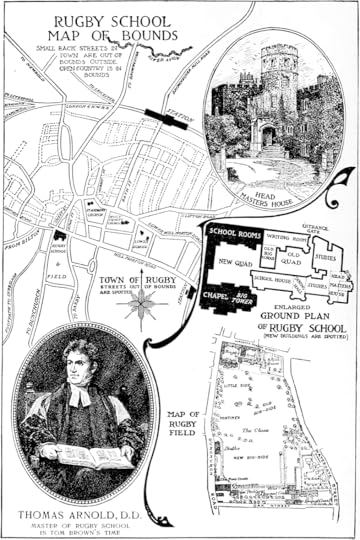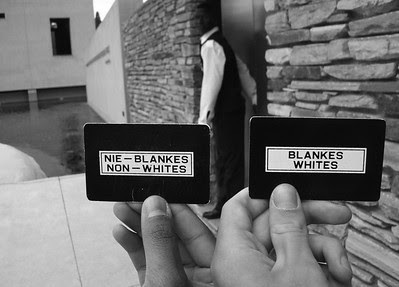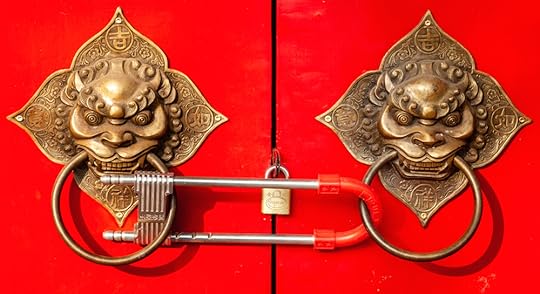Stephen Roney's Blog, page 180
October 20, 2021
Indian Horse

I hear from a fellow teacher that the kids in grade 8 are now reading a book titled “Indian Horse,” by Richard Wagamese. Not a part of the literary canon when I went through. Apparently it is a fictional account of a First Nations child’s life in one of the Indian Residential Schools.
It is fiction, of course, so Wagamese is free to make things up, and cannot be called on it. However, I’m not sure eighth graders are sophisticated enough to realize this. To be honest, I’m not sure the average high school teacher is sophisticated enough to realize this. They are all going to think it is an accurate description.
It is chock full of accusations against the residential schools and the Catholic Church. In a sane society it would be recognized as “hate speech,” and would not be allowed in the school library, much less taught there.
A representative passage:
At St. Germ’s the kids called me “Zhaunagush” because I could speak and read English. Most of them had been pulled from the deep North and knew only Ojibway. Speaking a word in that language could get you beaten or banished to the box in the basement the older ones had come to call the Iron Sister. There was no tolerance for Indian talk. On the second day I was there, a boy named Curtis White Fox had his mouth washed out with lye soap for speaking Ojibway. He choked on it and died right there in the classroom. He was ten.
And then, of course, he was thrown into an unmarked grave.
This is almost at the level of Nazi anti-Jewish propaganda. It is likely to end in violence.
It is perhaps worth noting, and perhaps significant, that Richard Wagamese, the author, never went to an Indian Residential School. Although ethnically Indian, he was also not raised as an Indian. Abandoned by his birth parents at age two, he was raised by “white” adoptive parents in St. Catherines. He has no more knowledge of the reality of residential schools than the next Canadian.
'Od's Blog: Catholic comments on the passing parade.
October 19, 2021
Killers in High Places

One thing that troubles me about writing poetry is that what you write is so commonly misunderstood; and the same is so for creative fiction. So if people are not going to get it, are you wasting your time writing it?
A recent discussion on a Leonard Cohen Facebook group was over someone’s puzzlement over the lines
I can't run no more
With that lawless crowd
While the killers in high places
Say their prayers out loud
But they've summoned, they've summoned up
A thundercloud
They're going to hear from me
And the interpretations they got were various. Some suggested that “killers in high places” referred to the government of George W. Bush. And the “thundercloud” was a political revolution.
The reference, of course, is to all governments. It is the plain understanding of both the New Testament and the Old that “the nations” are up to no good, that the Devil is the lord of this world: “it has been given to me, and I can give it to anyone I want to.” (Luke 4:6).
All governments kill as a matter of course. Being able to kill without repercussions is pretty much definitive of government: the monopoly on force. We even tacitly acknowledge this in selecting as our leaders relatively ruthless men. A Churchill, a Lincoln, a Sherman; they did some very cruel things. This is why Constantine delayed his baptism until his deathbed—because he had to sin so long as he was going to be Emperor, and so baptism would be insincere and meaningless until then.
Government is necessary. Government cannot be much improved. Revolution does little. The thundercloud is divine judgement.
October 18, 2021
Why Were Indian Residential Schools Uniquely Abusive?

Xerxes went to a private residential school in India, and he and his fellow alumnae seem to have pleasant memories of it. He writes:
“The majority of letters describe the boarding school experience in glowing terms, especially about lifelong friends made there. I wonder even more what made the staff at Indian Residential Schools, especially the nuns, so abusive. I wish I knew more.”
He has a point. There is no good reason why the level of abuse should be higher at an Indian Residential School than at any other residential school. The circumstances are the same.
In fact, we do not know if the Indian Residential Schools were any more abusive than the average residential school.
The reports we have in either case are anecdotal. Some may come forward; some may not. For those who do, we rarely have independent corroboration. We cannot really tell how widespread abuse was.
We can assume that a situation where an adult has control over every aspect of a child’s life is a situation that will allow for bullying and sadism, and will attract bullies and sadists. This will hold true for any kind of residential school. It will hold true for orphanages. It will also hold true for families. The easiest way a bully or a sadist can indulge their worst desires is to have children.
The imponderable question then becomes, in which of these three situations is the likelihood of abuse the greatest, and is there any way we can reduce the risk?
In fact, the risk is probably less in an orphanage or residential school than in a home. In an orphanage or residential school, no one staff member has such absolute control as does a parent. Other staffers are likely to intervene. A child abused in a residential school can appeal to his parents to go home. A child kept at home (or in an orphanage) has no escape.
Upper classes everywhere have from time immemorial farmed out their children to others. Was this is for the convenience of the parents? I doubt that. Do most people really dislike spending time with their children?
It is more likely for the children’s protection. Time has taught us this lesson, and we have forgotten it. A child is most at risk at home. No doubt the average upper class parent would not abuse. But they could not be sure of other relatives: not their spouse, and not some uncle. Safest to have them in hands known to be responsible. And anyone who did not do this was probably suspected of abuse, which itself was helpful.
As for orphanages, Richard Mackenzie, who grew up in an orphanage, found his own childhood had been happy enough. So he decided to investigate. Were orphanages really that bad? An economist, he knew how to gather his data.
He found:
Alumni reported that they had done better than the general population on almost all measures, including education, income, attitude toward life, criminal records, psychological problems, unemployment, dependence on welfare, and happiness…. The alumni reported that they had an overall college graduation rate 39 percent higher than the general population in their age group … They also reported 10 to 60 percent higher median incomes than those in their age cohort.
Twice as many pronounced themselves satisfied with their own lives, and twice as many felt they had achieved “the American Dream.”
“Yes, there were occasional bad eggs on staffs of my own and other orphanages I’ve surveyed,” Mackenzie acknowledges, “… but they were probably rarer than those found in many biological and foster-care families.”
How might we try to reduce the risk? One obvious strategy, and a traditional one, is to give the charge of residential schools and orphanages, and farmed-out individual children, over to religious groups, who pay attention, if imperfectly, to the moral character of their employees. In some cases, as with priests and nuns, religions require of them some material sacrifice, such as celibacy or poverty, as a proof of sincerity. Even in the public schools, until a few generations ago, the primary consideration in hiring a teacher was their known moral character.
Lacking hard evidence, there is good reason to assume that the level of abuse in the Indian residential schools was lower than on reserve, or in the general population. But this has never been looked into—due to a larger agenda of scapegoating religion and driving it off the reserves.
Most people raised in their biological families remember their childhood as a golden time. It usually is. Most people also remember their time in residential schools fondly: I think of Tom Brown’s School days or Goodbye Mr. Chips. There have always also been some who had the opposite experience. I think of the movie “If…,” my friend James FitzGerald’s book Old Boys, or George Orwell’s memoir “Such, Such Were the Joys.”
However, it is far more socially acceptable to report a bad experience at an Indian residential school than in one’s family or in a private school. One even stands to get financially rewarded for it. So we get far more reports of it.
'Od's Blog: Catholic comments on the passing parade.
October 17, 2021
Math Is Hard
From Small Dead Animals: clear proof not only that critical race theory is being taught in the Ontario public schools, but that it has even infiltrated the teaching of math.
The Canadian Caste System
 It's all right there in black and white.
It's all right there in black and white.Friend Xerxes has identified Canada’s First Nations as our “Dalits,” the untouchables in our caste system. They are, after all, sequestered away on their sordid reserves without even clean drinking water.
I couldn’t agree more. The current reserve system is exactly what Martin Luther King fought against. It is segregation. Indeed, it is worse than that. It is apartheid.
However, ironically, it is not caused by any hostility or ill-will towards the First Nations, or any desire by the rest of Canadians to make them disappear. The roots of the problem are more complex.
The Liberal government of Pierre Trudeau proposed abolishing the Indian Act and the reserve system in 1969, replacing it with a cash settlement. The chiefs of Alberta rose against it, and Trudeau and Chretien have been criticized for this ever since. The federal government wanted to abolish the residential schools too, as early as 1947. They were more expensive than sending Indian children to ordinary day schools. Here too, the Indian chiefs and band councils opposed it, and fought to keep the schools open until the late sixties.
The problem is, these things are established by treaty; it is not up to the Canadian government. They must have agreement from the chiefs.
Do the chiefs, in consistently opposing integration, represent the interests of the Indians? This is at least debatable. Band councils, designated permanent chiefs with powers to enforce their will, and reserves are all alien to traditional Indian culture. These are things created by the treaties themselves. Before this, individual Indians were more or less autonomous, moved constantly, and joined in groups or separated only for specific purposes.
In recent years, councils and chiefs are at least supposed to be democratically elected. But there is no private enterprise or steady employment on reserve. The band council holds all the money, and is responsible for every aspect of your life. No one is likely to dare to express systematic opposition to whomever is currently in control. Should they lose the next election, or indeed, should they organize to contest it, they are liable to lose their home and their livelihood. It is a situation similar to that in a Communist country; or one too poor to have developed a middle class.
The one presence on a typical reserve able to stand against total control by the band council, around which a political opposition might form, has been the church and its residential schools. This is why the church is under attack by the band councils. It is the last check on their power, the last protection the individual Indian had.
Why are there so often problems with drinking water on reserves? Isn’t this, here as anywhere, primarily the responsibility of local government? Why is this not an indictment of the band council, and the band council system?
One further big problem with the current system is that the chiefs have a vested interest in fomenting bad feelings towards the larger society. This maintains their power, it unites Indians against a supposed common enemy, and it keeps them in thrall on the reserve. Reconciliation can probably never come under the current system.
For Indians, or for the government, it is a Catch-22.
My own solution would be to transform each reserve and each tribe recognized by treaty into a corporation, with each member holding a share. This would better reproduce the Indian tradition, without breaking any treaties. If any member dissented from the tribal management, he could sell his share and leave. Or he could keep and use it as collateral to start his own business.
More in my book, Playing the Indian Card.
'Od's Blog: Catholic comments on the passing parade.
Was Sir David Amess Targeted Because He Was Catholic?
Perhaps it was only because he was openly Christian.
Why Is China Being Such a Bad Neighbour?

China and India have failed to negotiate a de-escalation of tensions along their common border. China is now rushing further troops to the region. No doubt India is doing the same.
In terms of their national interest, China is acting irrationally. It makes no sense to alienate all of your neighbours simultaneously. And so long as China is developing and arming faster than their neighbours, stalling war for as long as possible and reducing their neighbours’ sense of threat is their best strategic path.
Three things might cause this mad behavior. First, the government in Beijing may see things going badly domestically. They are trying to distract the population from this and get them to rally around the flag to stay in power. Foreigners in general work as a scapegoat. Second, things may be going badly enough that, behind its opaque accounting, the leadership in Beijing believes their financial situation relative to their neighbours is actually deteriorating, or is about to; they need to strike when the iron is hot. This seems to have been why Germany went to war both times in the Twentieth Century. This thesis, however, seems least probable to me. Even if things are about to go downhill, China does not look powerful enough to take on India, Australia, Taiwan, Japan, Vietnam, the Philippines, Indonesia, Malaysia, and the USA concurrently. If they really intend to attack any one of them in order to improve their position—for example, to seize Taiwan and its assets—they should be making nice with all the others.
Here’s another thought. The CCP has worked hard to destroy all rival internal power structures. They fear any organized group might develop into an opposition to their power. They no doubt have reason to. They have cracked down hard on religious organizations of all kinds: Falun Gong, the Christians, the Muslims. They have now also begun to crack down hard on large corporations, on Jack Ma and on Everbright. But the one potential rival organization they cannot crack down on is the military. A country always needs a military, well-organized and disciplined to take orders from its officers. This is why the military is the usual source of coups in any less-developed country. There has never yet been a military coup in a Communist country, but this may have been luck. Rumour is that it was touch and go whether the government of Deng Xiaoping could rely on any unit near Beijing to suppress the Tiananmen protests in 1989. Indeed, in most revolutions, it is all over when the army turns.
It may therefore seem prudent to Xi Jinping to keep the bulk of the Red Army and its most respected or ambitious commanders occupied at the distant border. The Himalayan border with India is ideally remote in this regard. The South China Sea is a pretty good place to keep your naval commanders busy; navy revolts in port were critical in the German Weimar and the Russian revolutions.
This would explain why there are no comparable border tensions or sabre rattlings with Russia or Mongolia. Their borders are still too close to Beijing.
If this assumption is correct, the last thing China wants is a shooting war. If they lose, the loss of face might easily be enough to topple an evidently shaky government. If they win, the prestige may go to the Army or to the local commander, setting them up for a coup.
The risk is of a miscalculation. And that they are acting so recklessly suggests the current regime in Beijing is indeed very shaky.
'Od's Blog: Catholic comments on the passing parade.
October 16, 2021
The Origins of Cancel Culture

You might be wondering what’s behind “cancel culture.” How did we so quickly descend into apparent mass psychosis?
The answer, I believe, is postmodernism. Specifically, it is the idea that there is no objective truth. If this is so, everyone invents their own narrative, making the world whatever they want it to be.
The current battleground is transgenderism because it establishes the basic principle: I can be whatever I want to be; I can choose my reality.
The naïve postmodernist imagines this leads to a world of “live and let live,” in which everyone gets to be and do whatever they like. But the necessary consequence is the opposite. Without any objective standard to appeal to, there is no possibility of compromise of or coming to any accommodation. Instead, when my “reality” inevitably conflicts with your “reality,” the only course is to silence you, and ultimately a battle to the death.
That is what we are seeing now. A quite similar movement, operating from the same premises, led to Nazi Germany. It is the triumph of the will.
'Od's Blog: Catholic comments on the passing parade.
October 15, 2021
The Sin of Pride
'Od's Blog: Catholic comments on the passing parade.
The Realities of Early Childhood



